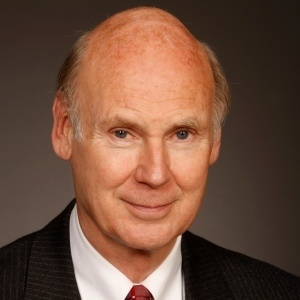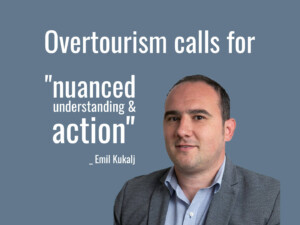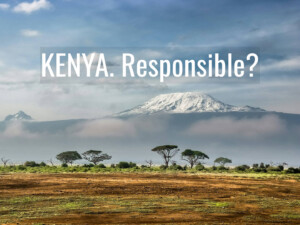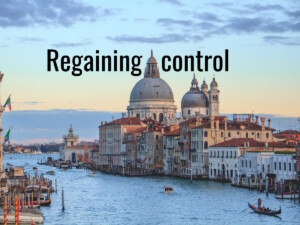What ‘good tourism’ needs: Listening, learning, leading
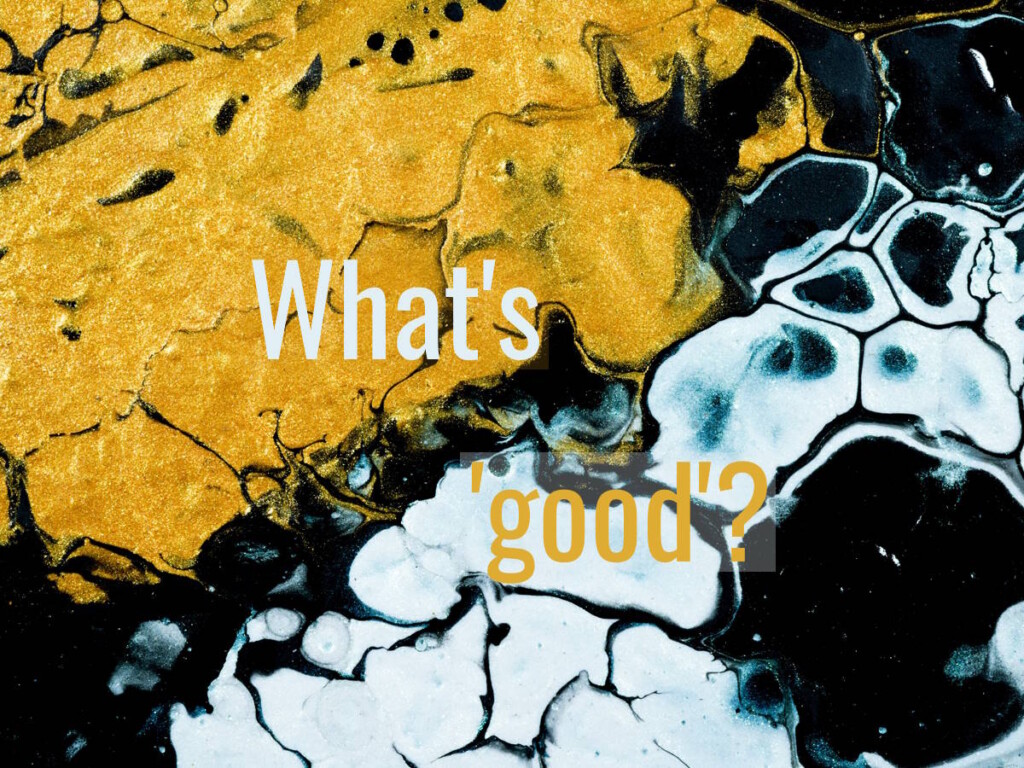
K Michael Haywood wonders what the subjective notion of ‘good tourism’ is, or could be, and how it might be achieved.
It’s a “Good Tourism” Insight. (You too can write a “GT” Insight.)
The ‘good’ in ‘good tourism’ represents the search for that which is desirable and deserving of esteem and respect. It suggests that tourism activities be appropriate within future-ready societal, locational, cultural, and operational contexts.
In this sense, tourism should contribute to peoples’ well-being, including that of visitor-serving organisations and communities-as-destinations; everyone desirous of creating and capturing net-positive shared value that thwarts untoward environmental, social, cultural, and economic impacts, and eliminates unnecessary waste.
As a signifier of being morally admirable, however, the notion of what constitutes ‘good’ can perplex.
As a tool of social conformance that encourages thoughtful judgments, decisions, behaviours, and evaluations, one has to ask:
Who gets to determine what constitutes social norms (‘good’), and deviation from them (‘bad’), especially when universality, even within a ‘community’, is questionable?
As an indicator of performance, ‘good’ can be paradoxical.
Don’t miss other “Good Tourism” content tagged with
’Travel & tourism industry policy and governance’
‘Good enough’ never is
From a quantitative point of view, ‘good tourism’ references the rewards that come from boosting volume, value, and profits; the higher, the better.
From qualitative perspectives also, ‘good enough’ never is. In that context, ‘good tourism’ may identify the benefits of a reduction in consumption (even degrowth) in the context of ‘good’ social-ecological transformation.
What arises are challenging queries related to all types of growth: Advancement, prosperity, success, and the pursuit of a myriad of derived business value-creation opportunities from burgeoning demand and lifestyle choices.
As a consequence, we need to revisit the essence of ‘good growth’ and ‘enough growth’ (even degrowth) in regards to what, why, for whom, when, and how.
We’re all involved in and dedicated to the pursuit of survivability and thriveability, yet we’re quick to judge what others consider to be right or wrong.
Mediocrity has to be eradicated
To master the present, whatever our circumstances, mediocrity has to be eradicated.
How? By escaping the trough of inefficiency, improving quality, committing to sustainability, doing better, and innovating in order to reverse the decline phase of organisational or destination life cycles.
Businesses, especially, are bound by ever-present complex (cyclical, seasonal, capacity) dualities to perform and transform, and to do both without jeopardising longevity.
But what constitutes mediocrity? Whose expectations, sense of justice, or rules apply? And what set of facts, assumptions, contexts, and circumstances underly them?
The stories we tell ourselves are always incomplete; “good or bad it’s hard to say”. Yet the prospects for existential crises or losses can’t be ignored.
No wonder, then, that opinions and beliefs about tourism are becoming increasingly polarised and entrenched. Strongly-formed impressions persevere, particularly when opposing sides fail to understand the variety of operational contexts or necessities.
The outcome: People and organisations content to exploit the fractures that divide us, resulting in an ever-evolving ‘trial-by-ordeal’.
Rapprochement should be possible
While reasoning becomes enigmatic — when “myside biases” and/or “illusions of explanatory depth” prevail — doesn’t everyone believe they’re on the side of ‘good tourism’ in their own minds?
If so, there must be some degree of common ground or agreement as to what’s considered ‘good tourism’ in all its manifestations.
Rapprochement should be possible.
If only an Abrahamic pathway to agreement could be introduced.
If only roadmaps, as in UNESCO’s attempt to create mutual understanding among different cultures, could be achieved.
All destinations strive to flourish. But it requires all stakeholders to recognise their mutual interdependence; an interdependency that requires cooperation, collaboration, and a willingness to commit to ‘deep purpose’ and a shared vision.
For goodness sake, trust must be re-built. As such, we have no choice but to design integrated approaches to resolve misunderstandings.
In doing so, it behoves us to appreciate different forms of loss and gain, believe in win-win outcomes, and embrace our humanity and desire to survive and thrive together.
To grow through change — with respect for integrity, honesty, and human dignity — the initial step requires that we seek first to understand, then to be understood; a process that will require intense listening, strategic learning, and visionary leading.
Don’t miss other “Good Tourism” content tagged with
’Travel & tourism and destination management’
Intense listening for ‘good tourism’
Throughout our lives we’ve been admonished to listen. Yet we have a tendency to tune out opposing points of view, especially when we don’t appreciate ‘the other’ or their frames of reference. When this occurs, we turn inward to our own thoughts.
Conversations cease along with our desire to listen. With the noise in our lives intensifying, we grow impatient and filter out what we disagree with.
But then when we do try to listen we’re often put down when our responses aren’t wanted; our silence required. This has become quite prevalent in our family, social, and professional lives. No wonder many of us feel ignored and belittled. It has to cease.
As a counterpoint, Stephen Covey reveals how everyone can find their voice.
How can we hone our listening skills and those of others, and set up safe places for all stakeholders to explain their views and share how they feel?
Real power comes from opening our minds to listening.
As William Ury, the renowned negotiator contends: Listening is the only way we’ll ever find agreement on what is good or worthy.
It’s a challenging task, as Simon Sinek reveals in this interview with Deeyah Khan about her documentary, White Right: Meeting the Enemy.
Honing our listening skills and approaches to true understanding takes skill and effort.
Strategic learning for ‘good tourism’
Learning cannot occur without listening. And without learning — or by adopting the wrong kind — people, organisations, and industries won’t survive in tomorrow’s world.
Progress requires that we invest in lifelong educational tools and opportunities in order to improve our judgement. It can be accomplished by advancing the art and practice of learning organisations, and by coaching ourselves to listen, think, respond, persuade, and pursue vicarious learning experiences.
For learning to be at the heart of our ability to adapt to a rapidly changing world, it has to be about striving for magnificence through transformation and transcendence. Our competencies and skills should never be merely mediocre and transactional.
Peter Senge’s exploration of strategic learning highlights the importance of being aspirational in search for deeper awareness and knowledge. He highlights the need for commitment, guiding philosophical frameworks, and learning infrastructures.
Effectively done, strategic learning acts as a stimulant that demonstrates to people that they are capable of achieving far more that they think they can achieve; “getting better by knowing how to get better”.
Read more “Good Tourism” Insights by K Michael Haywood
Visionary leading for ‘good tourism’
There is no escaping the narratives, emotional contagion, and shifting expectations among stakeholder communities. This age of outrage, climate crises, and assault on globalisation and capitalism is becoming the new normal.
In response, Karthik Ramanna notes that we have to have a collective obligation to respond sensitively and work together, based on a shared purpose.
Many NGOs are already mobilising their power to bring about improvement. Some major corporations and SMEs are following suit, refining and relating their purpose to specific causes. However, these undertakings tend to be piecemeal and cautious.
If they are to be perceived as honourable, goals and outcomes have to be set. But no one can afford to set expectations that cannot be met.
As a consequence, organisations and stakeholder communities are recognising the benefits of networks to foster a sense of collective force and identity (e.g. Future of Tourism Coalition).
Reference here is to open networks that operate with a sense of purpose, principles, and philosophies regarding rapprochement:
- Networks that recognise the importance of mutual dependence and collaboration, a collective sense of accountability, and consensual control;
- Control that rests in the management of relationships by expertly nudging situations in appropriate directions through mediated negotiation.
- Networks designed to tackle complexity and ambiguity, broaden competencies and reframe contexts.
Fortunately, network leaders can get an early start by accumulating new knowledge.
The real value multiplier, however, comes from the network effect as the number of participants in the network expands.
The ‘how’, not the ‘what’
All in all, ‘good tourism’ has to have a destiny: A deep purpose that everyone holds to while acknowledging current realities and remaining optimistic about progress; where creative tension is about the ‘how’, not the ‘what’.
A shared purpose with opposing sides, however, may seem brittle, but ‘good tourism’ will always be a battle to maintain gains and ease strains.
Through disciplined dedication to achieving breakthroughs, good tourism organisations and communities-as-destinations can become great …
But only if they listen, learn, and lead.
What do you think? Share your own thoughts in a comment below. Or write a deeper “GT” Insight. The “Good Tourism” Blog welcomes diversity of opinion and perspective about travel & tourism, because travel & tourism is everyone’s business.
“GT” is where free thought travels.
Featured image (top of post): What’s ‘good tourism’? Image by FLY:D (CC0) via Unsplash.
About the author
K Michael Haywood is Professor Emeritus, School of Hospitality, Food and Tourism at the University of Guelph in Ontario, Canada. Prof Haywood has recently written an e‑book “Astonish, Smarter Tourism by Design”. Find Michael on LinkedIn.


